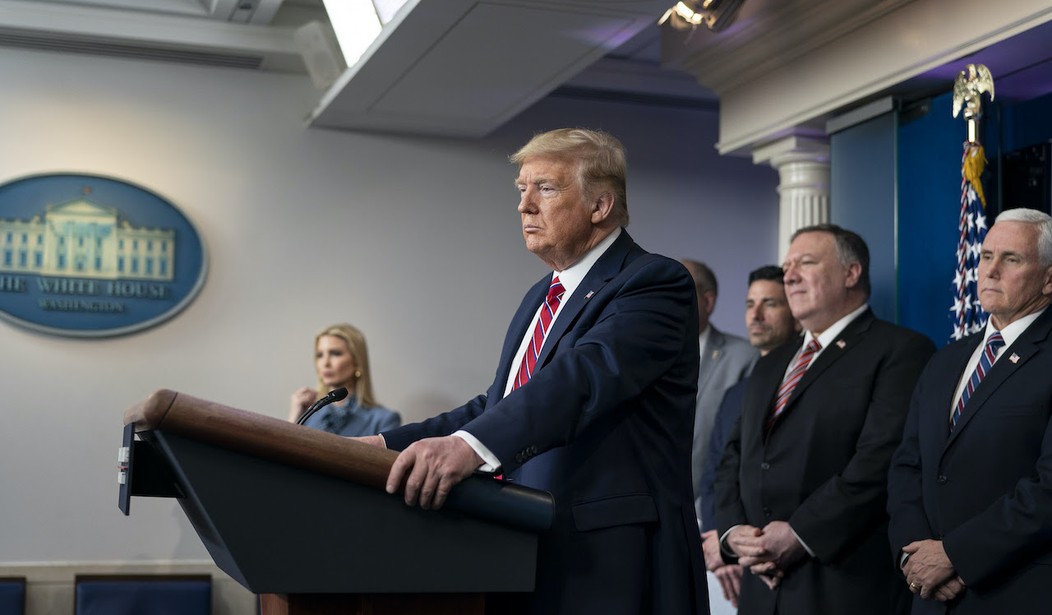Editor's Note: This column was co-authored by Loyd Pettegrew.
Many consider the Constitution of the United States a truly inspired document. It developed the principles of individual liberty and political democracy to an extent previously not realized in the world. It is especially useful for times like these.
One of its more novel contributions to political theory is the concept of Federalism -- a division of political power and governance between local, state and national agencies and offices. This division of shared political powers is primarily designed to protect individual freedoms, promote economic prosperity and strategically limit the size and scope of central government. James Madison’s most famous argument in Federalist No. 10 promoted an extended republic, advocated by the Founding Fathers. He argued that it was critical to preserve liberty through a regime of limited, republican government.
At the time of the signing, most of the original 13 states viewed the political powers within their individual states as being supreme except for those specifically granted to the central government. However, the myriad powers held by the federal government were quite broad and not clearly enumerated in the document. This ultimately has led to political expropriation by our central government over time. It took a devastating civil war to decide some of the issues on the separation of powers and states’ rights, yet many remain unresolved. Nonetheless, a federal form of government, with a separation of political control between local, state and national offices remains the cornerstone of our political democracy.
Covid-19 has brought new attention to our Federalist form of government. President Trump has chosen to work through federalism to respond to the virus crisis by establishing a national task force headed by Vice President Mike Pence. Members of the national task force include: Jerome Adams - US Surgeon General, Alex Azar - secretary of Health and Human Services, Deborah Birx - White House Coronavirus response coordinator and world-renowned medical expert who worked extensively on the global fight against Aids/HIV, Ken Cuccinelli - acting director of U.S Citizenship and Immigration Services and deputy secretary of Homeland Security, Anthony Fauci - head of the National Institute of Allergy and Infectious Diseases (NIAID), Robert Redfield - director of the Centers For Disease Control and Prevention, and Seema Verma - administrator for the Centers of Medicare and Medicaid Services. This is a highly qualified team of experts. One would be quite disingenuous to suggest that Trump has not assembled a powerful federal team of experts to combat the virus. The task force meets with the President and briefs the nation daily.
Recommended
This led to a typical New York Times front page assessment, "The Coronavirus bailout stalled. And it's Mitch McConnell's fault. Senate Republicans are blocking passage of an economic bailout plan that protects jobs and wages."
Bowing to Federalism, President Trump has asked each governor to lead in their particular state's response to Covid-19. Monday night Florida Governor Ron DeSantis sent a powerful message to New York to remain home and not visit his state. No federal intervention was needed. This also follows a time proven maxim of best practice, that each problem should be resolved at the lowest level possible. In other words, every problem should be solved, if possible, by the people closest to the problem.
As governors create task forces to meet their unique needs, they will be able to diagnose and find specific solutions to the challenges unique to their state. President Trump's task force removes layers of red tape and excessive bureaucracy so governors can work with task forces at the state and local levels to address the virus. Just this weekend governors of all 50 states have activated national guard units in their respective states to address a myriad of Covid-19 related issues. President Trump has said the federal government will pay for this activation.
President Trump has also activated and mobilized the private sector to assist in the pandemic, understanding that the world of private business has unlimited capability to help solve the problem of the Covid-19 virus. Large corporations like GM, Big Pharma and Honeywell are quickly converting some of their capacity to help produce supplies and materials needed in the fight against the Chinese viral enemy. Numerous other companies are ramping up production of vital food and household goods to meet a surging demand as citizens stockpile in the fear of potential shortages.
Despite the quality of the people and businesses that President Trump has procured to lead the fight against Covid-19, Democrats and the MSM belittle him for his efforts on a daily basis. One reporter even labeled Trump a "sociopath" after one of his daily briefings. These are the same people who pounce on him for any unflattering label, like “fake news”, he might use. People watching the press conferences, however, without the MSM’s leftist prejudice, notice that President Trump is doing everything possible to update and calm the citizens of our nation. They denounce the president for not acting sooner to a rapidly evolving crisis. The Left and MSM's vitriol of President Trump was intended to thwart any programmatic crisis response.
Even in the face of crisis, Democrats have twice voted against Republican-led proposals in the Senate, fearful that the other side may get deserved credit.
One can only imagine how the Democrats would have approached this crisis with less state, and more federal control. A cumbersome bureaucracy, so synonymous with governance by Democrats, would have predictably only added cost and inefficiency.

























Join the conversation as a VIP Member